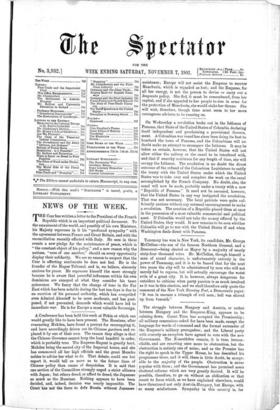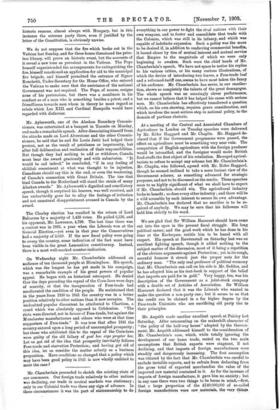The struggle between Hungary and Austria, or rather between Hungary
and the Emperor-King, appears to be calming down. Count Tisza has accepted the Premiership ; all military concessions asked for have been made, except the language for words of command and the formal surrender of the Emperor's military prerogative; and the Liberal party with scarcely an exception have agreed to vote with the new Government. The Kossuthites remain, it is true, irrecon- cilable, and are resorting once more to obstruction, but the obstruction is entirely one of noise; and as the Premier has the right to speak in the Upper House, he has described his programme there, and it will, there is little doubt, be accept- able to the majority of the people. Obstruction is never popular with them ; and the Government has promised some electoral reforms which are very greatly desired. It will be possible, therefore, to go on without an abdication or that resort to force which, as we have explained elsewhere, would have threatened not only Austria-Hungary, but Europe, with so many misfortunes. Sympathy in this country is, for historic reasons, almost always with Hungary, but in this instance the extreme party there, even if justified by the letter of the Constitution, is obviously unwise.































































 Previous page
Previous page